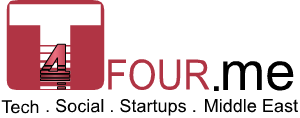According to Dave Mcclure of 500 startups Arabic is one of the key languages of the future that should be focused by tech  entrepreneurs.
entrepreneurs.
Hani Morrar, business development manager at Dakwak, a Web translation company in the 500 Startups Accelerator program writes that entrepreneurs are missing first-mover advantage by ignoring the Middle East.
“Even though the Arab world is home to more than 60 million smartphone users and 90 million people on the Internet, Arabic is widely regarded as the most under-served language on the internet,” Morrar says on the 500 Startups blog. “And less than 1 percent of all apps are available in Arabic. Talk about a BIG ASS missed opportunity.”
That’s a lot of potential users and Morrar writes that they’re easier to reach than it may seem. Using Google Translate or crowdsourcing services to get a basic modern standard Arabic translation is a good place if only because having some Arabic content would put a startup well in the lead of most companies.
Some key facts about the Arabic language on the Internet:-
- Globally Arabic is ranked 4th after Spanish, Chinese and English but only 3% of content online is Arabic.
- There are 17 million tweets everyday in Arabic, i.e. 1 billion tweets every two months.
- 1 out of 4 tweets written in Arabizi – (Arabizi is slang/an alphabet used to communicate in the Arabic language over the Internet)
Taghreedat is an initiative in Qatar to develop the Arabic content online by Samy AlMubarak. Taghreedat is a regional and international Arabic digital content community building initiative. With currently a community of over 2,500 Arab volunteers residing in 31 countries around the world, of which are 20 Arab countries.
Hani Morrar writes, “many people still have completely false ideas of what life is like in the Modern Arab world. People use the internet. They go on Facebook. Most of them have never ridden a camel, and many Arabs spend just as much time browsing silly internet websites as you do.”
According to recent research, 85% of consumers are more likely to buy a product with information in their native language.
